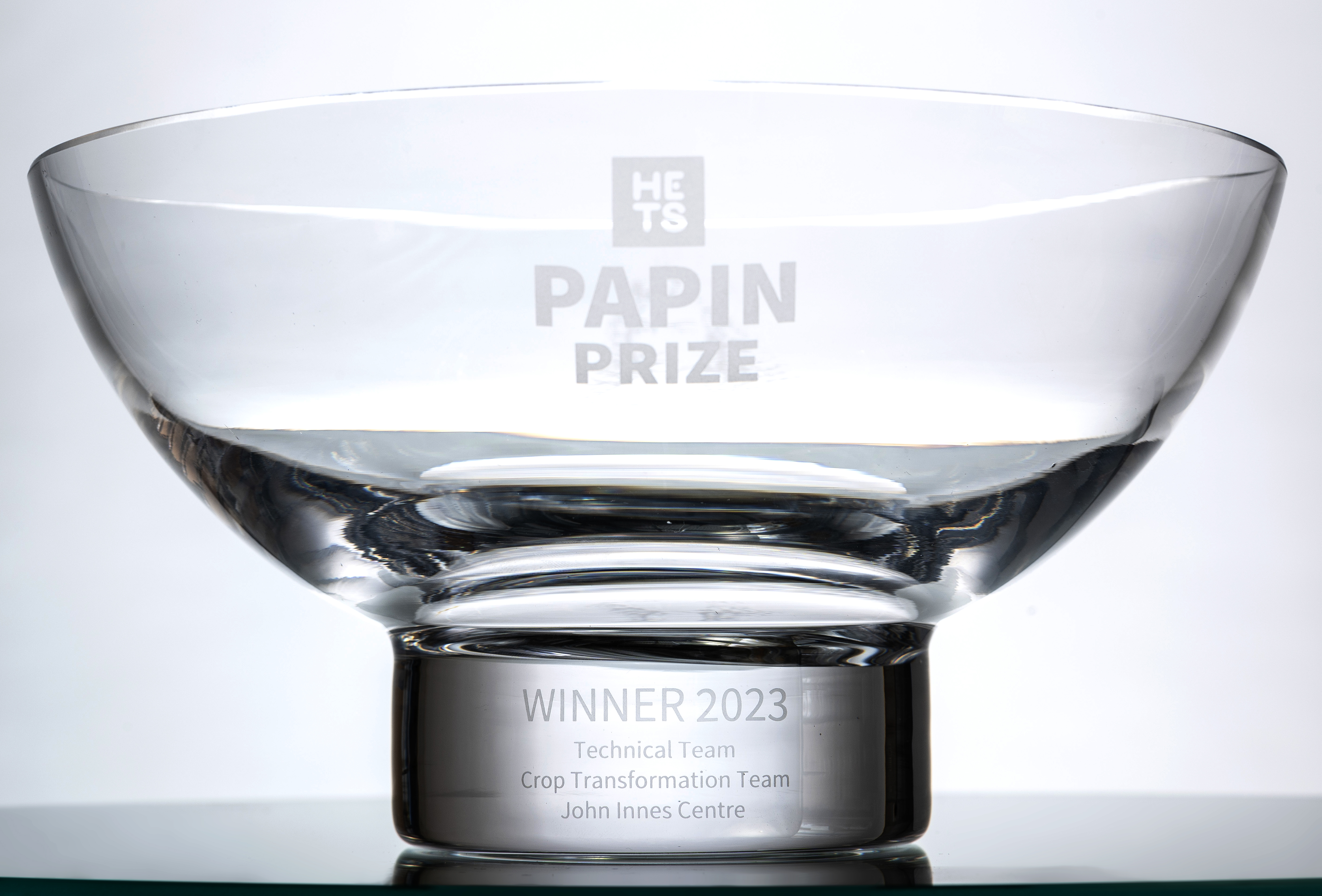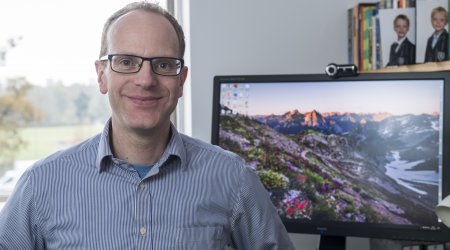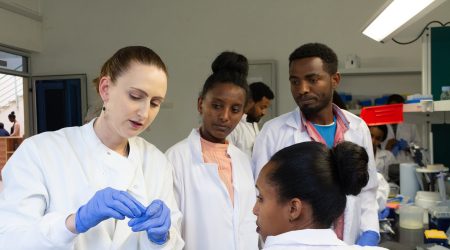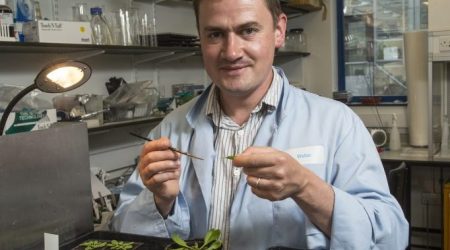Papin Prize for Crop Transformation Team
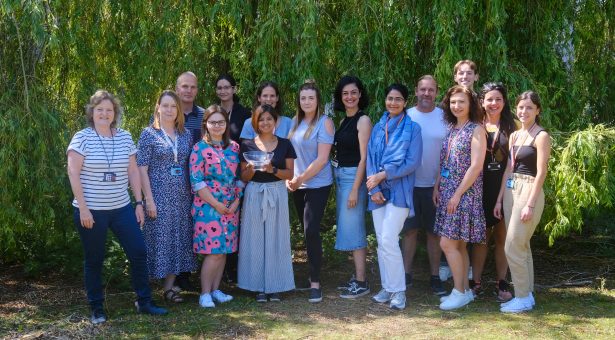
The expertise of the the Crop Transformation Team at the John Innes Centre has been recognised with a national award.
The team were awarded the Papin Prize, for ‘a technical team which has worked together to deliver excellence’ and follows their success winning the Outreach and Knowledge Exchange Team Award at the Research Institute Technician Awards in March.
Eleven Papin Prizes were awarded to technicians from across the country at the biennial UK Higher Education Technicians Summit, held at the University of Warwick, featuring a keynote speech from Professor Sir Jonathan Van-Tam.
The Papin Prizes are made to technicians in higher education and research who have demonstrated excellence.
The Crop Transformation and Genome Editing platform, also known as BRACT (Biotechnology Resources for Arable Crop Transformation) offers unique world-leading expertise in transformation and genome editing of crops.
The team supports science at the John Innes Centre and across the world, providing Genetically Modified (GM) and gene-edited plants to universities and institutes for research. They have a wealth of knowledge and skills and provide guidance and training to a range of different groups.
For scientists, they run international training courses and workshops, produce informational videos, and provide guidance on a range of project needs.
For the public, they regularly discuss their work and its impact with MPs, government departments and policy makers, industry, farmer groups, journalists, the public and schools. This includes members of the group contributing to policy engagement surrounding the new Genetic Technologies (Precision Breeding) Bill.
Dr Penny Hundleby, a senior scientist in the team, comments:
“It is really rewarding to see the whole team recognised for their wide-reaching impact. Each team member contributes to the delivery of transgenic and gene edited plants, underpinning research programmes at JIC, across the UK and beyond. Not only that, but they also all give their time to help train the next generation of scientists, and they contribute to knowledge exchange and outreach, working with policy makers and a range of stakeholders. The whole team has helped to put JIC on the map as a centre of excellence for gene editing in the UK.”
Graham Moore, Director of the John Innes Centre, says:
“I would like to congratulate the whole team on winning a Papin Prize, it brings well-deserved recognition for their hard work and dedication. The Crop Transformation team supports the research community here in Norwich, and around the World. Their work is fundamental to the success of the John Innes Centre. By developing the tools and techniques needed to work with a range of crop species, researchers can rapidly test theories and study the growth and development of plants with unparalleled support.”
The Higher Education Technicians Summit was established in 2015 by Midlands Innovation, in partnership with the Science Council. This year saw a record-breaking 357 nominations, representing 67 higher education and research institutions.
